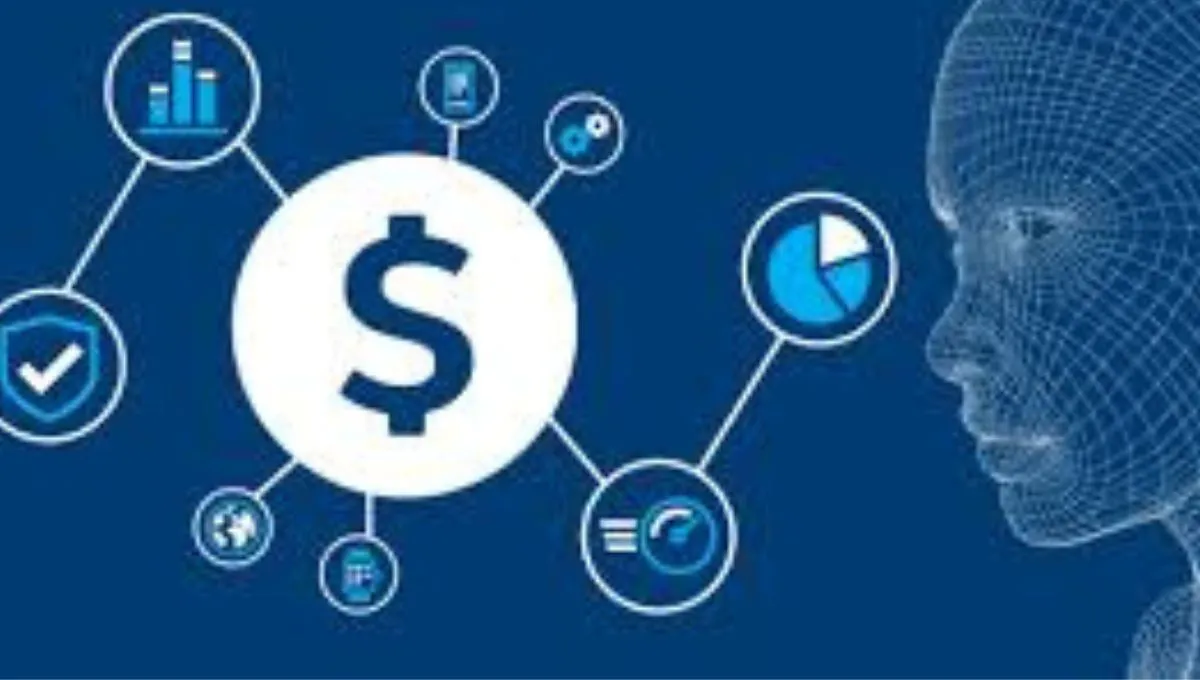Introduction
Why This Topic Matters Right Now
AI in Finance and Accounting has a major effect on work. Did you ever observe the quick pace at which finance changes nowadays? Progress has gone from waiting hours at banks to getting an instant online approval with mobile apps. This is only a partial view of what happens. Artificial Intelligence (AI) is becoming much more than just a trendy phrase. It is totally changing how we manage our money and finances.
So, if you’re curious about how big of a change this is, it affects more than only chatbots, for example. People use statistics in risk assessments, identify fraudulent activities, make investments, work in accounting and conduct auditing.
A Quick Peek at AI in Finance and Accounting
Many people have heard that AI replaces jobs in finance, yet that’s not really true. It was made to empower people. Try to see it as having a relentless and very intelligent assistant that studies pattern, uncovers dangers and presents data-based choices. In both business and personal finance, AI in Finance and Accounting is making it easier for people to make intelligent financial decisions by, for example, detecting fraud or removing manual steps from accounting.
It’s time to discuss the breakthrough role AI is having in shifting the banking and investment fields.
The Evolution of AI in Finance
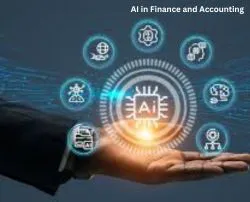
From Ledgers to Algorithms
No longer using ledgers; now it is all about algorithms.
Those yellowish ledgers and green balance sheets might come to mind. That was the original phase of finance.
We are going to talk today about predictive models, neural networks and high-frequency trading algorithms. Getting from analogue to digital and now intelligent technology is a process taking time, though it is happening faster than ever. AI in Finance and Accounting has a major effect on work.
Key Milestones in Financial AI
- 1980s: Expert systems are created to determine if a person or business is creditworthy.
- 2000s: Financial modelling started using big data.
- 2010s: Investment services were changed by the introduction of robot-advisors such as Betterment.
- 2020s: AI is now a major part of almost all financial activities and many of its effects are hidden.
The Role of Big Data in AI’s Rise
For AI to work well, it needs to ‘soak up’ lots of data. Due to online banking, e-commerce and mobile payments, financial institutions are now able to collect far more data than ever before. Getting more energy allows it to become wiser.
So, how AI in Finance and Accounting here are the main ways to boosts performance.
Core Applications of AI in Finance and Accounting
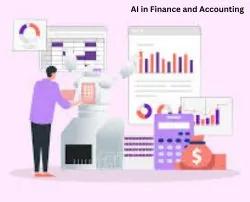
Fraud Detection and Risk Management
AI works as a highly enhanced security system. It reviews billions of transaction records in just a matter of seconds to look for anything unusual. AI in Finance and Accounting has a major effect on work.
Real-Time Alerts & Pattern Recognition
Suppose the card is used once in Paris and once in New York within one hour. Once it detects that as suspicious, it blocks the transaction right away. Thanks to advanced intelligence, fraud is now less likely to slip by and it is detected at a faster pace.
AI-Powered Credit Scoring
Think of traditional credit scores like deciding someone’s fate from their high school report card. AI studies your habits with money, payment methods and online actions to create a better understanding of your credit.
Algorithmic Trading
AI’s intelligence is especially valuable in finance.
Using these algorithms, markets can analyse worldwide trends, the latest news and previous patterns to take speedy action on trades. Market moves quickly, acts harshly and achieves results.
Personalized Financial Planning
The old way of teaching the same thing to all students is no longer used. Now, AI can help you with budgeting, saving, investing and insurance, all according to your particular goals, what you earn and how you spend your money.
Smart Auditing & Compliance Automation
Going through many thousands of transactions one by one? That’s old-school. AI does it quickly by finding unexpected patterns, notifying about problems and ensuring that the rules are respect in each transaction. AI in Finance and Accounting has a major effect on work.
How AI is Transforming the Banking Industry
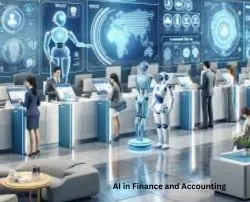
Chatbots and Virtual Assistants
No more sitting and waiting while someone answers the phone call. Erica (for Bank of America) and Eno (of Capital One) are always online to help you with daily banking needs like monitoring your account and blocking stolen cards.
Predictive Analytics in Lending
AI uses other factors beside your credit score. It reviews your job records, trends in your earning and how much you stick to due dates on your phone expenses to determine the risk you might be for a loan.
AI in Loan Approvals
You apply. AI looks at how your finances are doing. The website returns an answer to you in only minutes.
Now, this is what digital lending always does, supported by the use of AI in Finance and Accounting.
Enhancing Customer Experience Through AI
AI is right there with customers, giving them insights, offers and advice that are unique to them and updated each time they use the bank. AI in Finance and Accounting has a major effect on work.
How AI is Revolutionizing Investment Strategies
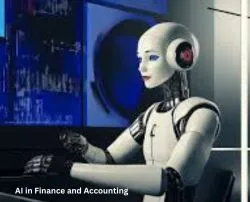
Robot-Advisors Explained
If you don’t have a financial advisor? No problem.
Services such as Betterment and Wealth front build and look after a well-rounded portfolio according to what you’re saving for and how comfortable you are with risks. Configure it, let it run and enjoy the results.
Portfolio Optimization with Machine Learning
The asset manager program continuously watches markets, measures your results and adjusts your finances as needed to achieve the best benefits. AI in Finance and Accounting has a major effect on work.
Sentiment Analysis for Market Predictions
AI looks at tweets, news articles, earning reports and Reddit forums to judge the mood of the market. It next projects possible shifts based on how the market feels.
Risk Assessment in Real-Time
AI is always operating because the market never rests. Being able to analyze information as it happens lets you respond straight away to risks and chances.
Challenges and Limitations of AI in Finance
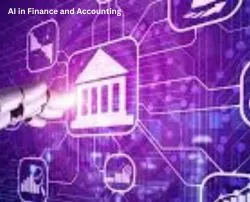
Ethical Concerns & Bias in AI Models
AI reflects the fairness or bias of the data in its training. Bias in old data leads to outcomes that are affected by that bias. It may cause people to be treated unfairly when applying for or receiving financial services.
Data Privacy & Cybersecurity
Financial information is extremely valuable and hackers recognize that. Proper encryption, secure storage and using AI for cybersecurity are necessary to stop breaches.
Over-Reliance on Automation
Relying entirely on AI is not safe without people noticing potential issues. The Flash Crash of 2010 is a good example of a massive financial spread. After algorithms malfunctioned, the market lost over $1 trillion in value.
Regulatory Hurdles
The law is not up-to-date with modern technology. Regulators are still working out how to handle the challenges that come with AI.
The Future of AI in Finance and Accounting
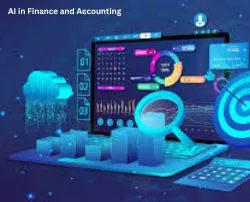
Hyper-Personalized Financial Services
Imagine an AI considering your income as well as your mood, aims and principles when recommending investments. That’s where the next challenges exist. AI in Finance and Accounting has a major effect on work.
AI and Blockchain Integration
Mixing the features of blockchain and AI produces financial ecosystems that are both safe and cannot be altered—exactly what smart contracts and fraud-proof transactions need.
Quantum Computing Meets Financial AI
As soon as quantum computers are used widely, AI will quickly be able to replicate whole economies in seconds. When these situations happen, financial modelling will take on more importance.
AI Skills Finance Professionals Should Learn
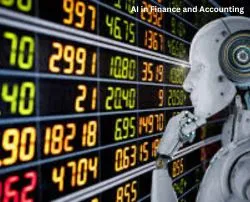
Basic Programming & Data Analysis
If your job is in the area of finance, learn to use Python or R. It looks set to take over in the way Excel does nowadays.
Understanding AI Tools & APIs
You aren’t required to create AI, but using TensorFlow, Scikit-learn or Watson will help you manage tech teams.
Staying Relevant in an AI-First World
Upskilling is something you have to do now. The fast development of AI in Finance and Accounting means that people working in the field must also change. AI in Finance and Accounting has a major effect on work.
Top Companies Leading the AI Revolution in Finance

Big Banks & FinTech Giants
- JPMorgan Chase – COiN is used for auditing legal documents.
- Goldman Sachs – AI is used by them to help with predictive trading.
- Bank of America – Erica, the smart virtual assistant. Erica, the smart virtual assistant is part of the Bank of America service.
Startups Making a Mark
- Zest AI – Credit scoring with artificial intelligence.
- Upstart – AI technology to quickly make lending decisions.
- Kensho – Using AI to predict market trends.
Real-Life Examples of AI in Finance and Accounting
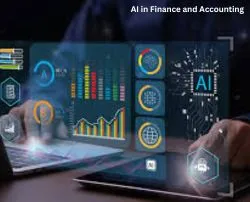
Case Study 1 – JP Morgan’s COiN
Extracting key data from legal documents used to take 360,000 hours, but COiN can now do it in seconds.
Case Study 2 – Kabbage's Lending AI
Small businesses receive loans from Kabbage right after applying, without having to go through the usual credit assessment process.
Case Study 3 – PayPal’s Fraud Prevention Model
Fraud detection at PayPal uses AI and reviews more than 1,000 aspects of each transaction. The result? There is less fraud and customers are usually more satisfied.
How Businesses Can Implement AI in Finance
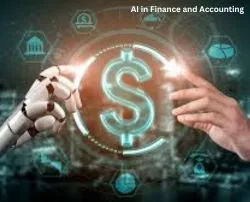
Assessing AI Readiness
Analyze how things are done at present to start. Can such jobs be performed by AI systems or be improved using AI technology? AI in Finance and Accounting has a major effect on work.
Choosing the Right Tools
Don’t let trends make you choose the most extravagant AI tool. Choose the database that will support what your team does well and achieve its goals.
Training & Upskilling Teams
How good AI is depends on those who are in charge. Attend courses or workshops to use your tools better.
Conclusion
AI is already active in the world of finance now—it’s not only something coming in the future. If you are a banker, investor, accountant or want to make better decisions with money, using AI in Finance and Accounting is required. It is necessary.
You can expect banking and investing to benefit from AI advances and become more tailored, safe and productive. Even with some difficulties, the positives of business are much greater—especially when you prepare for change.
FAQs
AI speeds up processes, improves how fraud is found, gives predictive advice and promotes faster and more thoughtful decisions in finance and accounting.
Yes! Because they rely on solid algorithms, robot-advisors are excellent for people hoping to passively invest over many years.
No, AI is able to do repetitive tasks, but decisions based on feelings, principles and strategy are still left to humans.
Some challenges like algorithmic bias, exposing data, system flaws and concerns about regulations are threats.
They can rely on AI systems to handle bookkeeping, create cash flow predictions, handle invoicing, monitor expenses and access fast financing.

